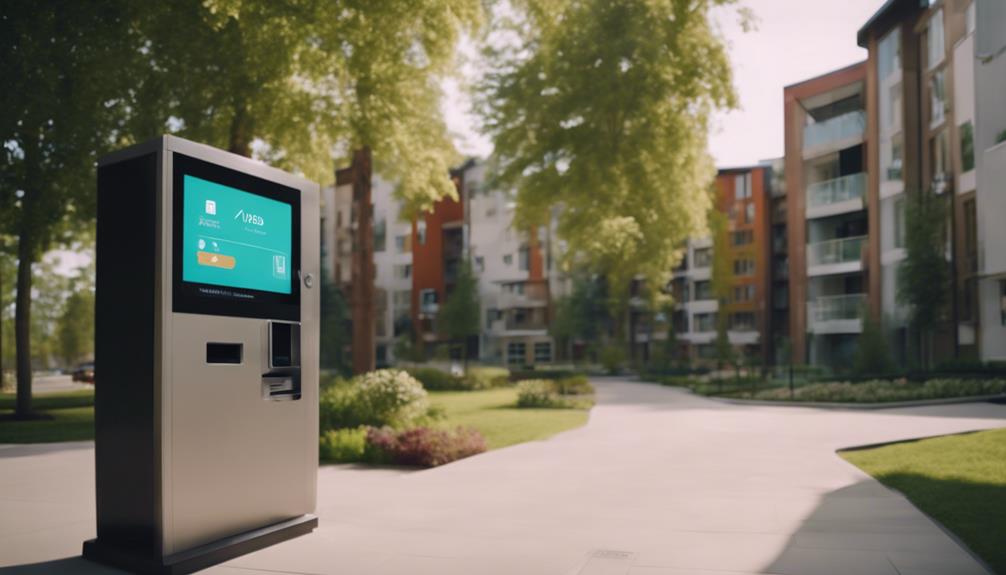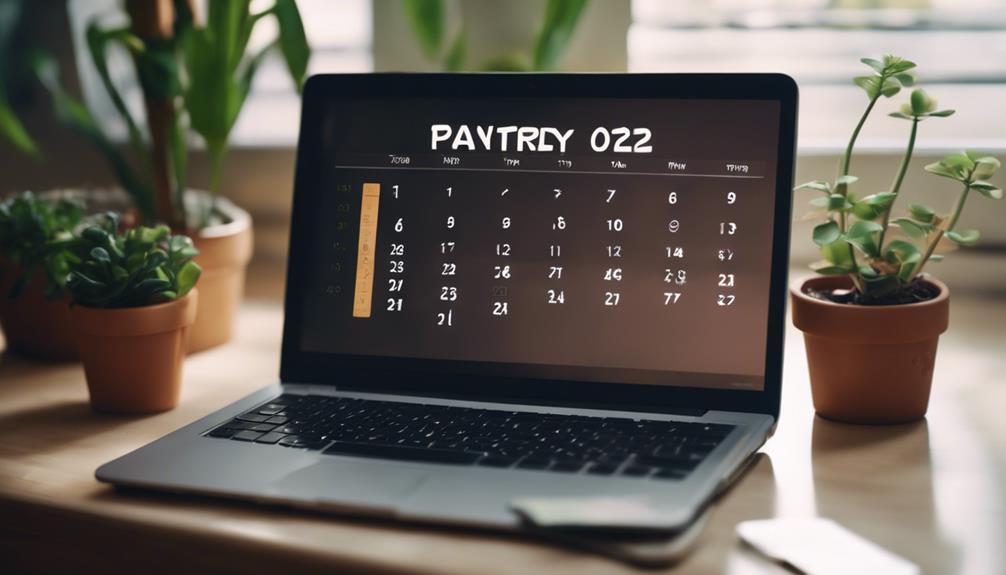Landlords are embracing the future of rent payments by implementing automated systems that enhance convenience for everyone. You'll find that autopay simplifies monthly obligations and guarantees timely payments, reducing stress for both you and your landlord. While some might resist this change, educating tenants and providing multiple payment options can greatly boost adoption. You'll also benefit from clear payment histories and reminder notifications that make managing your finances easier. With emerging trends like mobile apps and contactless payments, the landscape is evolving fast. Stay informed to discover how these innovations can improve your rental experience.
Key Takeaways
- Landlords are increasingly adopting automated rent payment systems to ensure timely payments and reduce stress for both parties.
- Contactless and mobile payment options are becoming popular, enhancing convenience and streamlining rent management for landlords and tenants alike.
- Implementing diverse payment methods, including cryptocurrency, can lower transaction fees and attract tech-savvy tenants.
- Educating tenants about autopay systems fosters comfort and compliance, facilitating smoother payment processes.
Understanding Automated Rent Payments
Automated rent payments simplify your monthly obligations, guaranteeing you never miss a due date while providing peace of mind for both you and your landlord.
When you include an autopay clause in your lease agreement, it clarifies payment expectations and helps you stay on track.
However, it's vital to understand any legal restrictions that might prevent landlords from mandating electronic payments.
Retaining the ability to reject automated payments during eviction processes is also important for maintaining control over the collection.
Familiarizing yourself with NACHA rules guarantees compliance and tenant data security.
Clear communication about the payment process can prevent misunderstandings and make you feel more comfortable with the autopay system, enhancing your overall rental experience.
Advantages of Automated Collections

One major advantage of automated collections is the assurance of timely rent payments, which reduces stress for both you and your landlord. With autopay set up, you won't have to worry about missing deadlines or incurring late fees. This convenience allows you to focus on other aspects of your life, knowing your rent is handled automatically.
Additionally, automated systems often provide a clear payment history, making it easier for you to track your spending. You can also enjoy peace of mind, as these systems typically send reminders before transactions occur. This way, you can manage your finances more effectively without the hassle of manual payments.
Challenges of Autopay Systems

While autopay systems offer many conveniences, they also come with challenges that can disrupt the payment process for both tenants and landlords. You might face issues like non-sufficient funds, which can lead to bounced payments and additional fees. Not every tenant feels comfortable with autopay, leading to potential misunderstandings or missed payments due to technical glitches.
Here are a few challenges to keep in mind:
- Technical Issues: System failures can prevent timely payments.
- Discomfort with Technology: Some tenants may resist using autopay systems altogether.
Monitoring these aspects is essential to maintaining a smooth payment experience.
Implementing Autopay Best Practices

To guarantee a smooth shift to autopay systems, educating tenants about how these processes work can greatly enhance their comfort and participation. Offer clear information on payment schedules and methods, and provide support for any questions.
Here's a simple breakdown of best practices:
| Best Practice | Benefits | Tips |
|---|---|---|
| Educate Tenants | Increases adoption | Host informational sessions |
| Offer Alternatives | Inclusivity | Provide multiple payment options |
| Monitor Payments | Identify issues quickly | Regularly check transaction statuses |
Compliance and Legal Considerations

Understanding compliance and legal considerations is essential for landlords looking to implement automated rent payment systems effectively. You'll need to navigate various regulations to guarantee that your processes are lawful and fair.
Here are key points to keep in mind:
- Include autopay clauses in lease agreements to set clear expectations for tenants.
- Be aware of legal restrictions that may prevent you from mandating electronic payments, guaranteeing compliance with fair housing laws.
Future Trends in Rent Payments

As technology advances, the future of rent payments is shifting towards more innovative and flexible solutions that cater to both landlords and tenants. You'll notice trends like contactless payments, mobile apps, and cryptocurrency options becoming mainstream. These advancements not only streamline the payment process but also enhance security and accessibility.
Here's a quick look at some emerging trends:
| Trend | Description | Benefits |
|---|---|---|
| Contactless Payments | Tap-to-pay options via mobile | Increased convenience |
| Mobile Apps | Rent management at your fingertips | Easy tracking and reminders |
| Cryptocurrency | Digital currencies for transactions | Potentially lower fees |
| AI Assistance | Chatbots for payment inquiries | 24/7 support and efficiency |
| Flexible Options | Customized payment plans | Better tenant satisfaction |
Enhancing Tenant Communication Strategies

Effective tenant communication strategies can greatly enhance relationships and improve payment compliance. By prioritizing clear and consistent communication, you can foster trust and guarantee your tenants feel valued.
Here are three key strategies to implement:
- Regular Updates: Keep tenants informed about payment reminders, policy changes, or maintenance schedules to minimize confusion.
- Accessible Support: Create multiple channels for tenants to reach you—like email, phone, or chat—to address their concerns promptly.
Frequently Asked Questions
Can Tenants Opt-Out of Automated Rent Payments at Any Time?
Yes, you can usually opt-out of automated rent payments. Check your lease agreement for specific terms, but most landlords allow this flexibility. Communicate your decision clearly to avoid any misunderstandings regarding payment schedules.
What Happens if a Tenant's Bank Account Is Closed?
If your bank account's closed, it's like a rent payment disaster! You'll miss payments, rack up late fees, and face eviction risks. It's essential to update your landlord immediately to avoid chaos.
Are There Fees for Using Autopay Services?
Yes, there can be fees for using autopay services, like transaction fees or charges for insufficient funds. It's important to check with your payment provider to understand any potential costs before setting up autopay.
How Can Landlords Track Payment History With Autopay?
To track payment history with autopay, you can use property management software that logs transactions automatically. Regularly review these records to verify accuracy and address any discrepancies promptly for better financial management.
Can Landlords Change Payment Methods During a Lease Term?
Yes, landlords can change payment methods during a lease term, but they must communicate the changes clearly to tenants. Guarantee any adjustments comply with lease agreements and local laws to avoid potential disputes.
Conclusion
As you embrace automated rent payments, consider it not just a technological upgrade, but a leap toward a more efficient and harmonious landlord-tenant relationship.
By streamlining your processes and enhancing communication, you're not just ensuring timely payments; you're building trust and satisfaction.
Isn't it time to step into the future and transform the way you manage your properties?
With these innovations, you can create a win-win situation for both you and your tenants.









